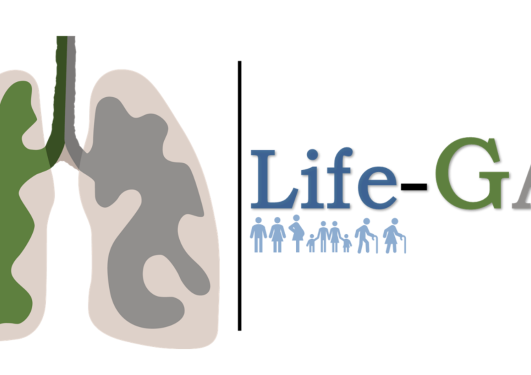Long-term exposure to air pollution increases the risk of hospitalisation
Long-term exposure to air pollution and a lack of access to green spaces increases the risk of hospitalisation for respiratory conditions, according to a study conducted by UiB-researchers.

Main content
Previous research has linked air pollution to an increase in respiratory conditions such as asthma, and access to parks and gardens to a decrease; however, less is known about the long-term effects of air pollution on respiratory hospitalisations
At the ERS Congress in Vienna, Austria, PhD candidate Shanshan Xu from the Department of Global Public Health and Primary Care, University of Bergen, presented the results from a study investigating this.
Her team used the results of northern European study centres from the European Community Respiratory Health Survey which covered respiratory hospitalisations from 2000 to 2010. The study looked at 1644 people from five countries.
Up to 45 per cent increased risk for hospitalisation
They evaluated the association between respiratory health and long-term exposure (between 1990 and 2000) to particulate matter, black carbon, nitrogen dioxide, ozone, and greenness (the amount and health of vegetation surrounding a person’s home).
Although Northern Europe has relatively low air pollution levels, they found that particulate matter, black carbon, and nitrogen dioxide increased the risk of being hospitalised for respiratory diseases in this population.
Xu explains:
"Specifically, we observed that for each interquartile range increase in these pollutants, the risk of hospitalisation rises by approximately 30 to 45 per cent, depending on the pollutant. Greenness, on the other hand, contributed to a reduced risk of respiratory hospitalisation."
Even moderate or low levels of air pollution might cause severe health effects in certain populations
Xu explains that air pollution causes persistent inflammation and oxidative stress in the respiratory system. These harmful processes contribute to the development and exacerbation of chronic respiratory diseases, which can escalate into severe health episodes requiring hospital care.
"It is also likely that long-term exposure to air pollution could lead to a decreased tolerance or increased sensitivity to these pollutants, explaining why even moderate or low levels might cause severe health effects in certain populations", says the PhD candidate.
The study is a part of the Life-gap-project.
This article is written by communiation officer of the ERS conference, Sian Halkyard, and edited by communication officer Ingrid Ovidie Lydersen Hagerup at the Faculty of Medicine, UiB.
